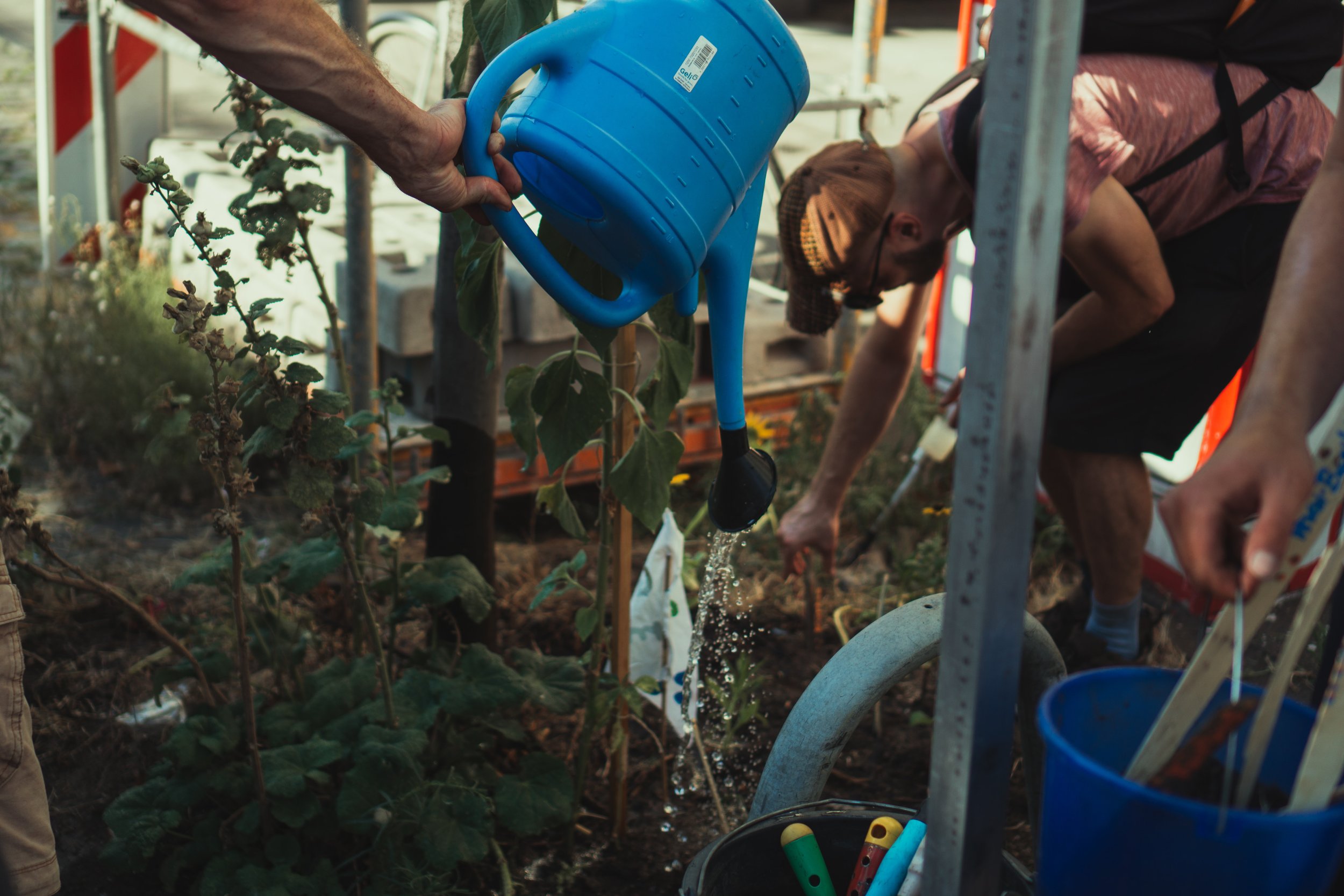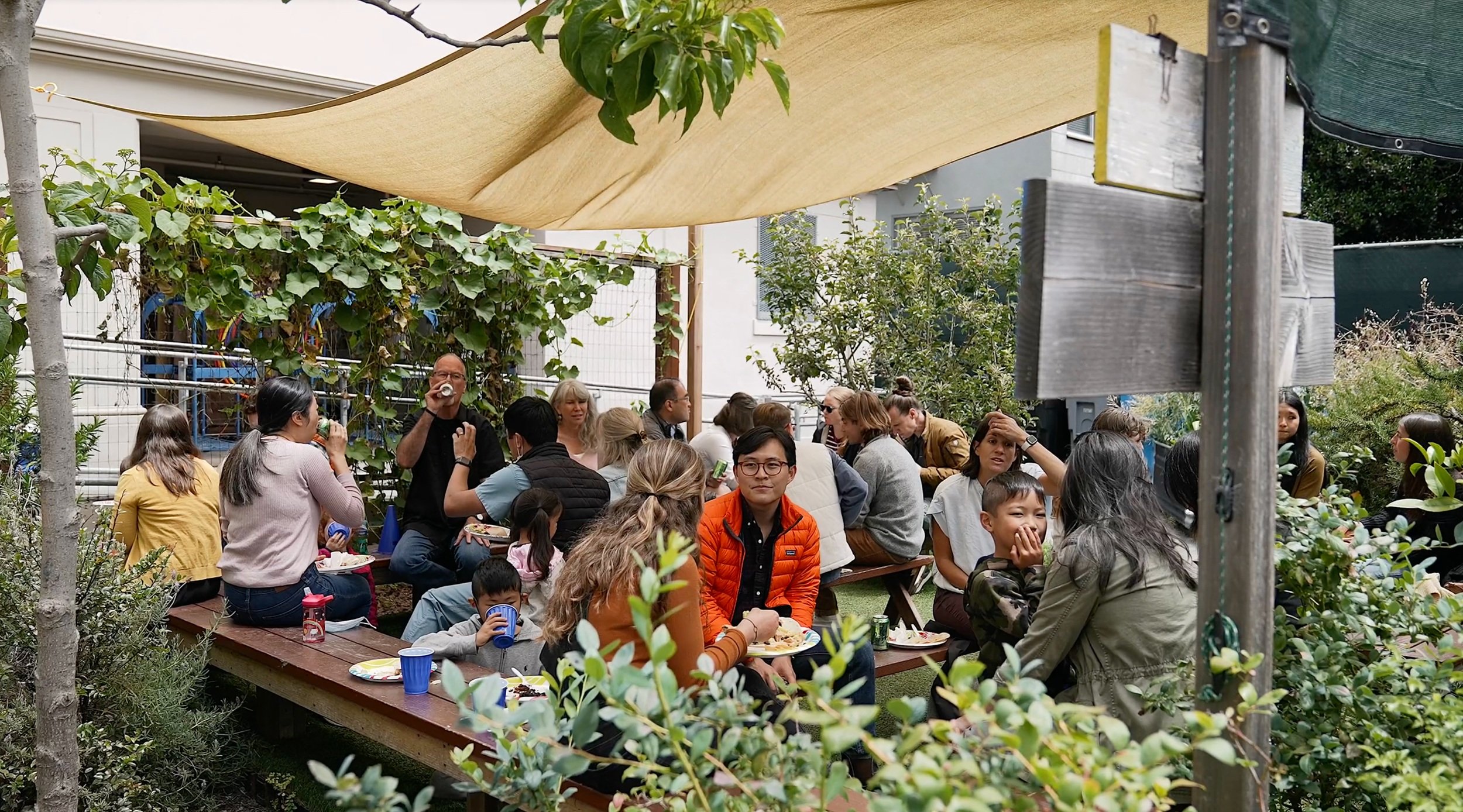
Missional Communities
A family of missionary servants sent as disciples who make disciples in the everyday stuff of life.
Our goal is not to get people to just come to our church gatherings. Our goal is to equip the Church, God’s people, to be the means through which Jesus makes Himself known in our neighborhoods, workplaces, schools, and in the places we recreate.
Why Missional Communities?
Jesus invites us to live life in a community where we are known, loved, and empowered to extend the love of God to those around us.
The Christian life cannot be lived alone, nor can it be carried out as one person in a larger crowd, which is the context of many American church gatherings. Instead, the best venue for living as disciples of Jesus happens in the context of a smaller group of disciples, mutually committed to growing each other’s lives and faith and pursuing God’s mission together.

Ready to experience missional community life in a city near you?
Missional Communities in the everyday.
These stories from churches around the country give a glimpse of how God moves through His people, in community, on mission.
Frequently Asked Questions
-
Jesus commanded us to make disciples. We believe that disciples are best made in environments like a missional community. Therefore, when we think about pursuing Gospel Saturation, we seek to establish churches planting churches and Missional Communities until we reach the saturation point of one Missional Community per thousand people in a place.
-
No, we see God using all kinds of approaches when building His church. That said, where disciples are being made, we believe you’ll find some of the common Missional Community priorities present (such as gospel/word, community, accountability, spiritual disciplines/liturgy, and mission). These commitments may come in different avenues, in different sized groups… but when Jesus is exalted, the Gospel is preached, the church is living together faithfully and accountably, and the lost are loved and evangelized, you will find disciples making disciples. We seek to remain faithful to these commitments in Missional Communities. We celebrate other ways God is using to build His church.
-
Nope. Soma is the Greek word for body. We regularly remind ourselves that the Church is people. We are no more defined by homes than other churches are defined by a steeple or a warehouse. Our emphasis is not on where a community meets, but on who the church is. All Soma churches emphasize both the gathering and scattering of God’s people. Soma churches have weekly Sunday church services (or gatherings) that look like many services in the western church. We engage through Gospel liturgies, sermons, children’s ministry, fellowship, and more. Soma churches are committed to Missional Communities as the everyday expression of being the church for one another and for those God is sending us to.
-
Visit www.saturatetheworld.com for:
-Saturate articles, blog posts, and resources on Missional Communities
-The Saturate podcast talks through a variety of Missional Community realities
-Saturate coaching communities for leaders who are leading churches Missional Communities
-Saturate transition coaching for churches who desire to form Missional Communities
-Saturate consulting on various questions related to faithful discipleship and mission
-Saturate everyday events that train people in the theology and practice of Missional Communities
-
We have seen Missional Communities struggle and thrive in many contexts: wealthy urban, poor urban, suburban, rural, North America, Australia, Eastern Europe, Chile, and India. God’s people coming around the Gospel, community, and mission is God’s idea. It is possible to live as the church in every time, place, and situation. Most who have come to the conclusion that “Missional Communities don’t work here” have either: 1) Started with an idyllic understanding of Missional Communities, usually borrowed from another context, or 2) Failed to execute on the basic functions of being the church in a particular place. The primary variable in whether Missional Communities thrive is leadership. We see imperfect communities of disciples living as the church on mission in the everyday when people are equipped, have sober expectations, and remain faithful.
In many post-Christian contexts (Europe, Australia, and others) and third-world contexts (which lack resources), our ministry partners have reiterated time and again that something like Missional Communities are the primary means for advancing the Gospel, either because people will no longer go to church (coming to us on our “turf” and our terms) or the church is so small and under-resourced that it must mobilize the entire Body to live on mission in order to see any meaningful gospel advance.
-
The everyday emphasis of the entire church living as a family on mission together is clearly displayed throughout the New Testament. In the book of Acts, the church is characterized by daily engagement in worship/discipleship, close connections, affection, and material solidarity (Acts 2:44–47 and 4:32–35). The church was in direct proximity to not-yet-believers such that “the Lord added to their number daily those who were being saved.” This scripture demonstrates that the church was living together daily, and living as a witness among unbelievers daily. This existence was the default mode of the church for the first few centuries, prompting some to describe this mode as a forgotten way rather than an innovation in the church.
-
Yes. Steve Timmis, CEO of Acts 29, and his co-author, Tim Chester, have written two books that articulate a similar vision for holistic discipleship (Total Church and Everyday Church). Tim Keller, in his seminal ecclesiology, Center Church: Section #6, which is entitled “Movement,” describes many of the priorities of a church mobilizing people for mission in something like Missional Communities. See also the Austin Stone, Verge Network, 3DM, and The Underground (Tampa, FL).

